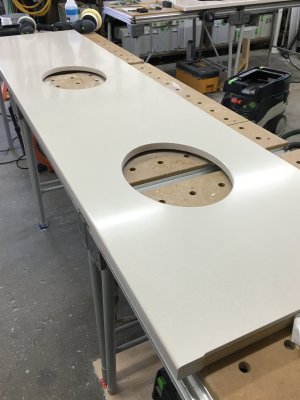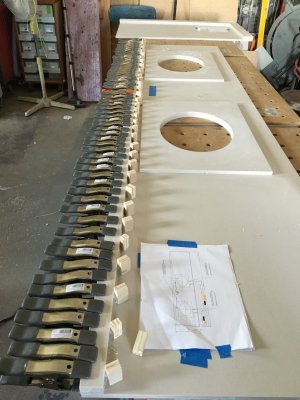- Joined
- Oct 16, 2015
- Messages
- 5,739
Good choice. With the right bits, it can do a lot of things. You're not going to be able to make crown molding, but there aren't many people doing that with a router anyway.I thankfully / sadly don’t have any bits, so the lack of 1/2” for the OF1010 isn’t a deal breaker for me. I appreciate that the 8mm is going to be a lot more stable of a bit, albeit harder to find.
Appreciate all the feedback. Went and picked up an OF1010 and accessory kit today. Excited to put it to use, have a few projects I’m going to throw at it and see how it does.
Most of the jobs, that really need 1/2" shanks, are probably better done on a table anyway. Not to say they are useless, I have a lot of them, and full-sized routers, but that really was before I had a router that could use 8mm (or even the bits at all)
I much prefer the mid-sized OF1010, for a large percentage of jobs.
Woodpeckers and Lee Valley are going to be your most likely sources, at least for now. Shaper Origin can use 8mm bits too, so as the volume/demand increases, there will be more choice.


